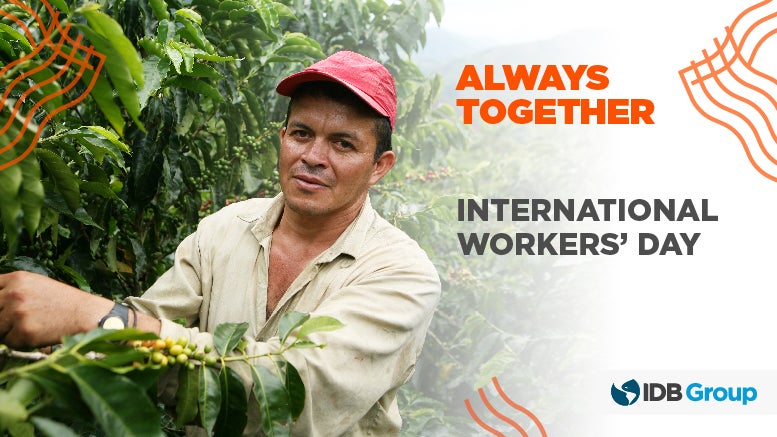International Workers’ Day comes this year in exceptionally difficult circumstances. This day, usually of vindication and reflection, is wrapped this 2020 in a context that nobody would have been able to anticipate just a few months ago. The global crisis caused by the COVID-19 pandemic has drenched the daily lives of millions of people worldwide. And the region, of course, is no exception. How will this unprecedented scenario affect Latin America and the Caribbean? What reality will workers find when the worst of this pandemic is over? There are many questions that we ask ourselves with great concern at this time.
This pandemic, in addition to seriously affecting the health of thousands of people, is also jeopardizing labor markets around the world. As a result of the mandatory confinement measures most countries are implementing, millions of people are unable to carry out their jobs. All this has caused the unemployment rate to increase dramatically, a particularly serious situation for Latin America and the Caribbean, where there is a context of high informality and job insecurity as a result of the low generation of quality employment that the region has suffered in recent years. The situation is certainly dramatic: according to our projection, this crisis could lead to losing up to 15% of the formal jobs in the region. These estimates, added to the impact that the pandemic is already having among those who work in the informal sectors, heralds a situation of great difficulty for millions of people in the region; especially for vulnerable groups such as women and people of African descent.
How to react
In a crisis of this magnitude, the greatest danger is paralysis, doing nothing. For this reason, it is worth highlighting the efforts being made in the region to, first of all, protect people’s health. The other big challenge is to protect people’s jobs and incomes: maintaining the maximum number of working relationships is essential to start the recovery as soon as possible. How to do it? Among the policy measures outlined in this note is, for example, that of discouraging layoffs or promoting shared work arrangements, where workers and companies, together with governments, join efforts to maintain employment (as has been done in several countries of the OECD). In The Bahamas and Jamaica, for example, the government is providing benefits to anyone who has lost their job due to the pandemic.
Workers in the informal sector deserve a special mention. In most countries, governments have reacted quickly by offering special bonuses to compensate people for not being able to work. This is essential to prevent many people from falling into poverty or further increasing their vulnerability.
Reacting well to the crisis will also mean supporting workers who lose their jobs. For this, it is necessary to strengthen Public Employment Services, which will have a leading role to ensure that those who have lost their jobs rejoin economic activity as soon as possible. It will also be essential to expand access to unemployment insurance that guarantees support in the event of loss of income. The path will not be easy: the fiscal margin of the countries in the region is very narrow and, therefore, all of us (workers, companies, governments …) will have to be more creative and imaginative than ever. All this without losing resilience.
Advocating for a better future
It seems increasingly clear that the world will have changed significantly when the worst of COVID-19 passes. Crises are opportunities to bring out the best in us and emerge from them more willing to work for the common good and achieve a better world. The coronavirus is not only generating immediate and devastating effects on work and income, but it is dramatically accelerating the digitalization and automation processes that we have been talking about for a long time. If nothing is done, this will broaden the gap between those who can perform in this new world of work and the rest. Therefore, in terms of employment, the recovery will not be such if it comes with more precariousness and less opportunity.
It is time to advocate firmly for a future with more quality jobs, more people prepared for a future that is already here and for a better social protection system that covers all workers in emergencies like the ones we are experiencing, without distinction. Otherwise, the region will remain installed in an especially weak situation and even more people will be left behind. In such a serious situation, it is not possible to take false steps. If we really want to overcome this crisis and go further, it is time to start working for a better future, that is, one with quality jobs and prepared and protected workers.
To learn more, we invite you to download the publication Labor markets of Latin America and the Caribbean in the face of the impact of COVID-19
Here you can also listen to more of our podcasts.


Leave a Reply